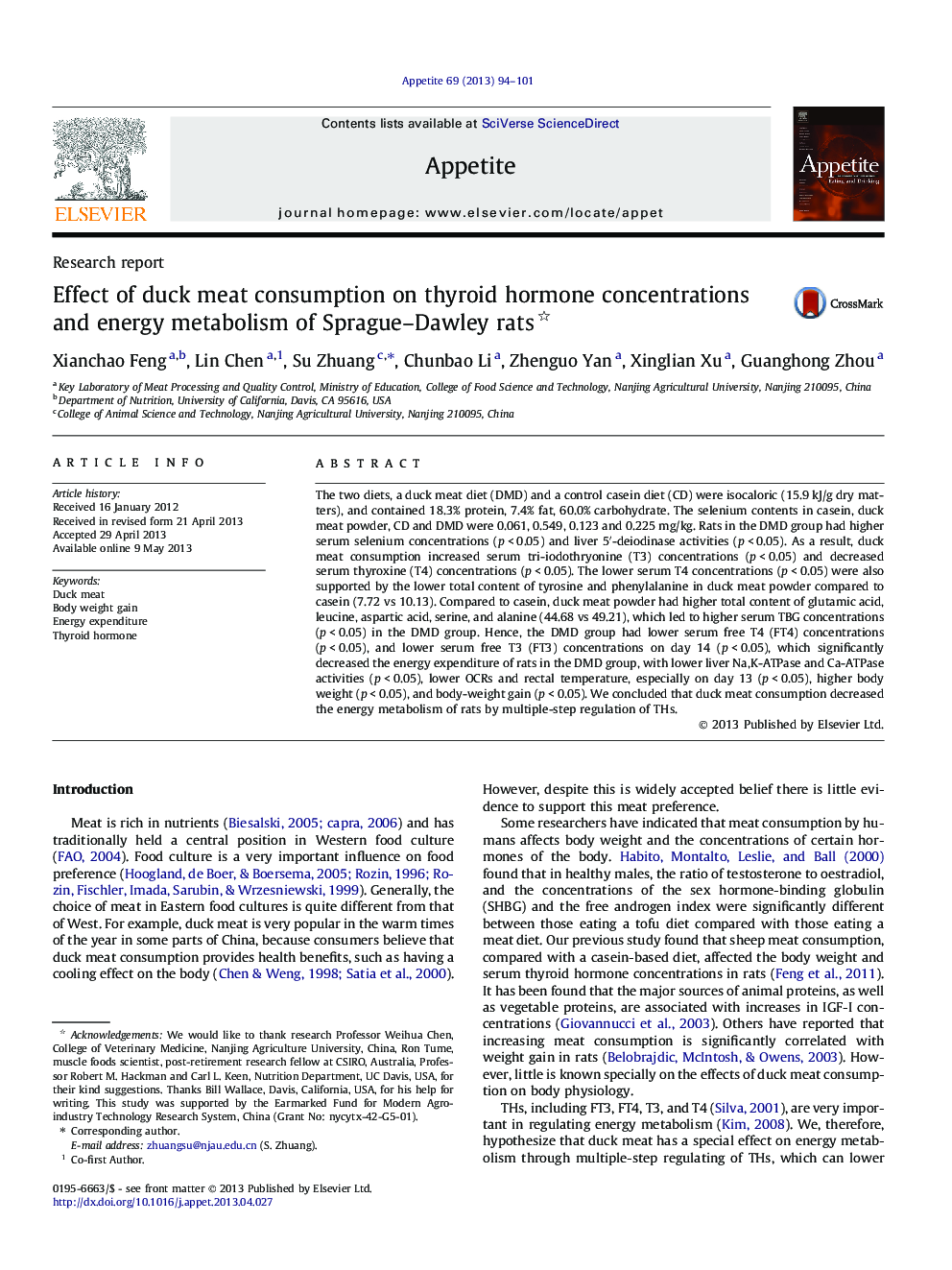| Article ID | Journal | Published Year | Pages | File Type |
|---|---|---|---|---|
| 939685 | Appetite | 2013 | 8 Pages |
•Impact of duck meat on serum thyroid hormone concentrations in rats is studied.•Impact of duck meat on energy metabolism in rats is studied.•The study may have importance for preference of duck meat in Eastern food culture.
The two diets, a duck meat diet (DMD) and a control casein diet (CD) were isocaloric (15.9 kJ/g dry matters), and contained 18.3% protein, 7.4% fat, 60.0% carbohydrate. The selenium contents in casein, duck meat powder, CD and DMD were 0.061, 0.549, 0.123 and 0.225 mg/kg. Rats in the DMD group had higher serum selenium concentrations (p < 0.05) and liver 5′-deiodinase activities (p < 0.05). As a result, duck meat consumption increased serum tri-iodothryonine (T3) concentrations (p < 0.05) and decreased serum thyroxine (T4) concentrations (p < 0.05). The lower serum T4 concentrations (p < 0.05) were also supported by the lower total content of tyrosine and phenylalanine in duck meat powder compared to casein (7.72 vs 10.13). Compared to casein, duck meat powder had higher total content of glutamic acid, leucine, aspartic acid, serine, and alanine (44.68 vs 49.21), which led to higher serum TBG concentrations (p < 0.05) in the DMD group. Hence, the DMD group had lower serum free T4 (FT4) concentrations (p < 0.05), and lower serum free T3 (FT3) concentrations on day 14 (p < 0.05), which significantly decreased the energy expenditure of rats in the DMD group, with lower liver Na,K-ATPase and Ca-ATPase activities (p < 0.05), lower OCRs and rectal temperature, especially on day 13 (p < 0.05), higher body weight (p < 0.05), and body-weight gain (p < 0.05). We concluded that duck meat consumption decreased the energy metabolism of rats by multiple-step regulation of THs.
